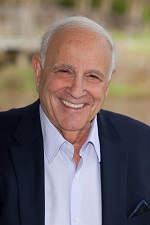ATD Blog
TD Professionals Mourn the Passing of the “Godfather of Needs Assessment”
Fri Oct 09 2020

Dr. Roger Kaufman, one of the originators of the human performance improvement models and an expert in needs assessment, passed away on September 23 at the age of 88.
Roger was professor emeritus at Florida State University (FSU) and a distinguished research professor at the Sonora Institute of Technology (Mexico). At Florida State he created the Center for Needs Assessment and Planning.
The story about his explanation of “wants versus needs” floated around LinkedIn in the days following his death. Jim Ellsworth, a national security leader and performance consultant, summed it up best in a September 27 post: "He was known as the godfather of needs assessment in our field, but it was really the work this led to that defined his greatest contribution. See, every time Roger tried to talk with a client about real needs—discrepancies between the desired state and the status quo—he had the darnedest time getting them to stop feeding him instead their favorite preconceived solution. When I was a doctoral student back in the 1980s, one of my professors—who had the privilege of studying under Roger at FSU—would honor this small legacy by fining us a quarter any time we used 'need' as a 'verb.'"
Roger explained it this way in one of his many industry interviews: "Needs assessment is often talked about and poorly understood—and when done poorly, this leads to lousy results. Many are actually 'wants' assessments and don’t focus on results and consequences. Need is frequently used as a verb: 'I need to do this' or 'I need more training.' This dumps you into a solution—a means—before you know the problem."
He was the recipient of a US Homeland Security/US Coast Guard medal for Meritorious Public Service. He also received the International Society for Performance Improvement’s (ISPI) top two honors: Honorary Member for Life and the Thomas F. Gilbert Award. He is a past ISPI president and a founding member, and he won ATD’s 2004 Distinguished Contribution to Workplace Learning and Performance award.
Roger published 41 books and more than 285 articles on strategic planning, management, performance improvement, needs assessment, and evaluation.
“Although most well-known for his needs assessment, I know Roger as a colleague who liked to share stories about his latest travels and cuisine experiences,” says Elaine Biech, author, consultant, trainer, and president of ebb associates. “He was one of the experts I could count on to challenge my thinking about topics such as process improvement, quality, and innovation.”
Roger’s passions went beyond the world of talent development. According to his obituary, in the late 1960s during his career as an engineer, he designed and created with Ken Wallace the first turbine car to race in the Indianapolis 500. His emphasis on our obligation to improve society is also gradually being accepted. Kaufman’s early writings contained his mega-planning, societal-referenced concept and he has applied mega-planning in many of his public, especially government, endeavors. In 2014, ISPI created the Roger Kaufman Award for Societal Impact, which recognizes outstanding societal impact at the public, private, and nongovernmental levels.
“Roger had a deep concern for social responsibility, even before it was the politically correct thing to do,” note Patti and Jack Phillips of the ROI Institute. “He encouraged us to constantly think about how we can protect the environment and help those who are less fortunate.
“Roger didn’t mind challenging the status quo with an eye on making things better,” the Phillipses add. “His last article, published two weeks ago, challenged the misguided strategies in educational system planning and offered some good advice to improve the situation. It was always intriguing to have a serious conversation with him. We will miss him and his many contributions.”
